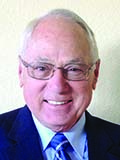Reliability: Plan startups wisely and involve SMEs
DE, a retired former colleague of mine, recounted his experience as an expert witness for ABC in litigation against XYZ. (Note that I picked the letters A through M for the plaintiff’s side; N through Z are assigned to the defendants.)
IP: 3.16.70.101
The Author
Bloch, Heinz P. -
Hydrocarbon Processing Staff, Montgomery, Texas
Heinz P. Bloch resides in Montgomery, Texas. He retired as Exxon Chemical’s Regional Machinery Specialist for the U.S. and has authored or co-written more than 780 publications, among them 23 comprehensive books on practical machinery management, failure analysis, failure avoidance, compressors, steam turbines, pumps, oil mist lubrication and optimized lubrication for industry. Mr. Bloch holds BS and MS degrees (cum laude) in mechanical engineering from the Newark College of Engineering (NCE). He is one of 10 inaugural inductees into NCE’s Hall of Fame, which honors its most distinguished alumni.
Related Articles
From the Archive







Comments